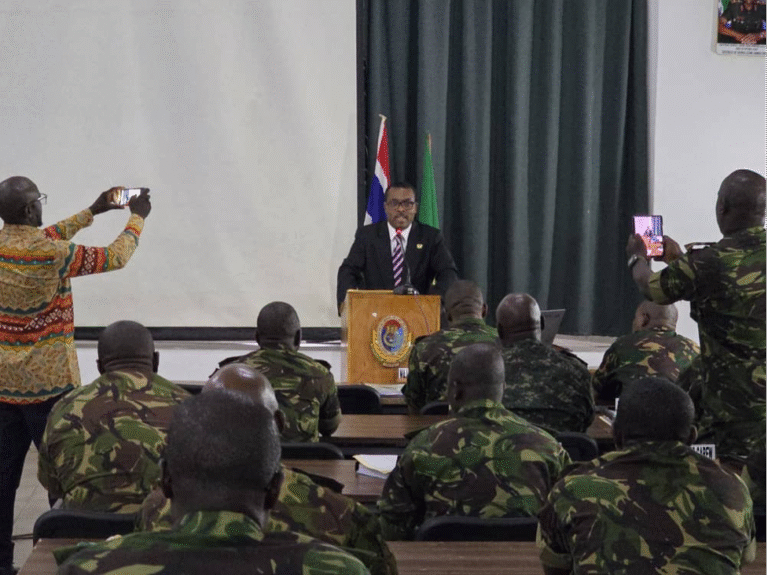…To Create 6000 Jobs
By Saidu Dumbuya
One of the leading global wastes to energy producers, Infinitum Energy Group Waste to Energy SL LTD is determined to invest a whopping sum of US$200m on waste to produce electricity while creating 6000 jobs.
Addressing a news conference on Wednesday, 11th June, 2025, at the precinct of Special Court, the Country Director of Infinitum Energy Group, Dr. Yassin Kargbo said that years back when President Bio visited the United States, their company met with him and informed him of its plans to invest in the energy sector through waste management.
He said the president accepted the initiative and instructed some of his ministries’ officials to work closely with the company to ensure that the company actualizes its vision.
Unfortunately, he said, it is almost four years now they have been battling to get the project started, as a result of delays by some of the institutions responsible.
He therefore called on President Bio to swiftly intervene for the project to kickoff.
Stakeholders Engagement and Community Development Strategist, Jonathan Rubin said that their company is poised to invest in wastes that will be transformed to energy.
He said they are ready to produce 30 megawatts which will be sold to government at an affordable price, adding that the company, through its wastes collection unit, plans to create more than 6000 jobs and generate 1000 tons of waste a day.
Kyle Newell, who is leading Impact Ventures at Impact Pathways, a sustainability consultancy working with IEG to support the design and implementation of sustainable infrastructure projects said the vision for this project is not only to generate clean, reliable energy but also to support the development of a broader system for managing wastes in a way that delivers environmental, economic, and social value.
He said one common feature of successful waste-to-energy projects globally is a blended approach to cost recovery. This, he said, includes revenue from electricity sales and also structured support for waste collection and processing. This process is globally recognized as the way to ensure that the infrastructure can operate reliably while delivering safe, consistent waste disposal services.
According to Kyle, even in highly industrialized economies, less than 10% of municipal solid waste has direct market value—meaning the rest must be supported by a structured waste management system, which is why he said blended financing mechanisms, finding multiple revenue to help aid in waste management are critical.
And one such outcome of these approaches is to help ensure that the cost of electricity generated from waste remains affordable.
The more of the operational cost that can be recovered through waste services, the less pressure there will be on electricity pricing.
He said what IEG is doing is consistent with global best practices: supporting the creation of a full waste ecosystem—not just a facility. This includes working with government partners, community stakeholders, and investors to build the financial and operational models that enable long-term viability.
He maintained that “this initiative also brings other important benefits:
Creating jobs in waste collection, plants operations and related services, reduces open dumping, improves air and water quality, and help reduce flooding by keeping waste out of drains. This is about partnership. It’s about building a model that works that sets the stage for a cleaner, more resilient future.” He stressed.
The company plans to partner with the Freetown City Council and also has plans to do waste collection in the north and southern provinces.







